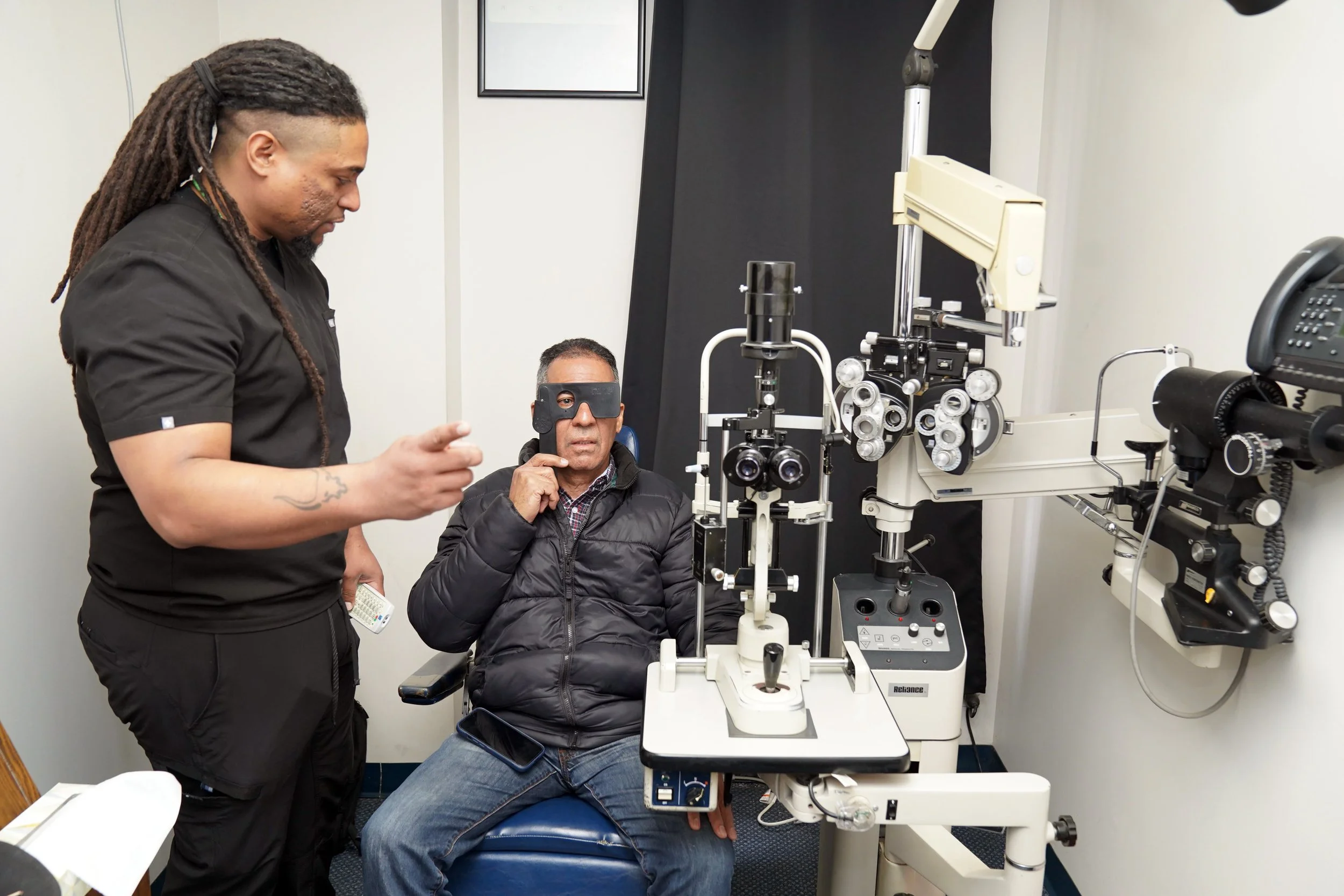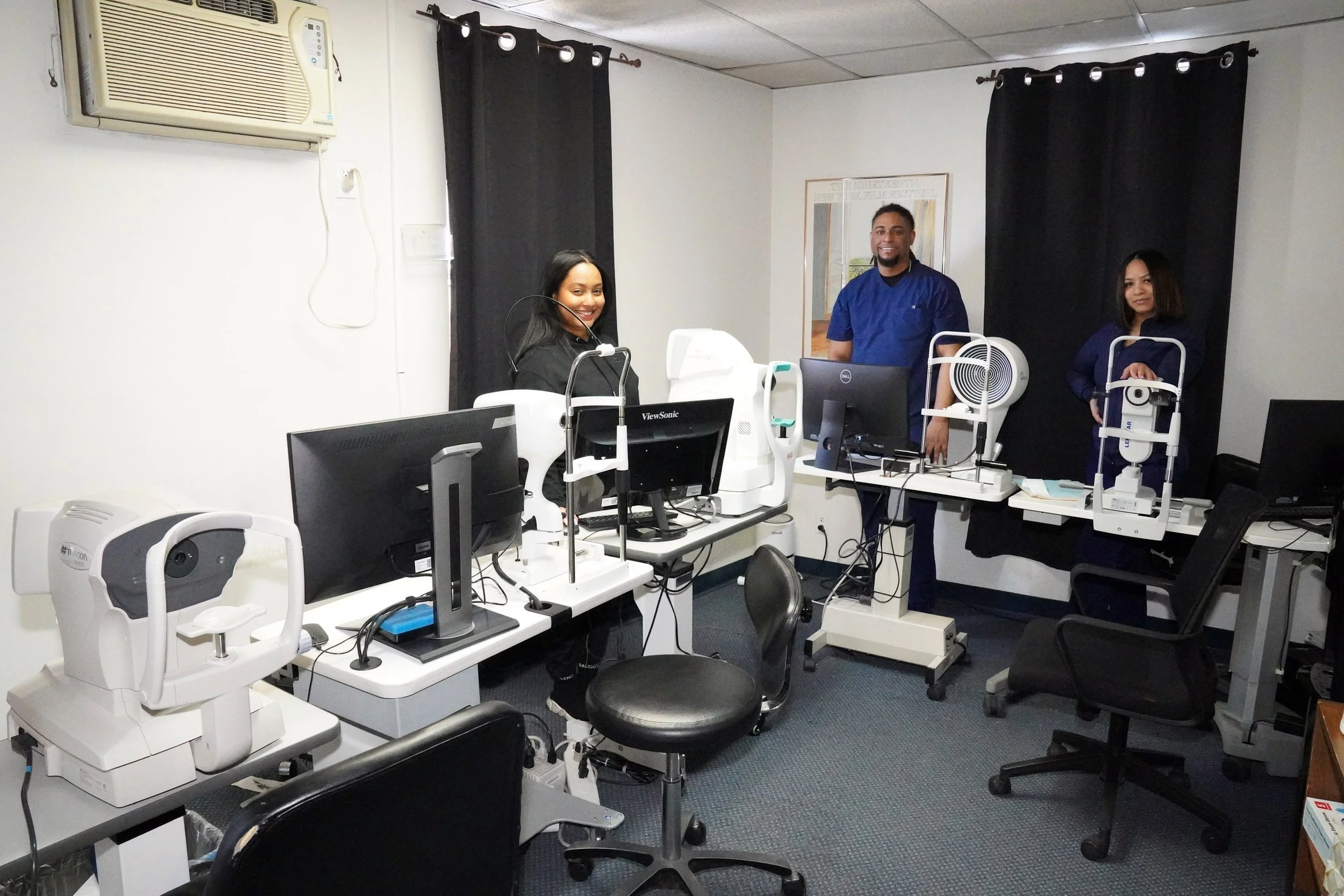Why Annual Eye Exams Matter—Even If Your Vision Feels Fine
You can read every street sign. You don’t need glasses. You’ve never had an issue with your eyes.
So, do you really need an eye exam?
Yes. Absolutely.
Even if your vision seems perfect, your eyes could be hiding early signs of serious conditions—many of which show no symptoms until the damage is already done. At North Manhattan Eye Center (NMEC), we believe in proactive care that protects not just how well you see today, but how well you’ll see tomorrow.
Here’s why making your annual eye exam a priority might just save your sight.
1. Your Eyes Can Reveal More Than You Think
A comprehensive eye exam does more than check your vision—it gives your doctor a window into your overall health. Our eyes are connected to the rest of the body in complex ways, which means eye exams can often catch signs of systemic health issues before other symptoms appear.
Some of the silent threats an annual exam can help uncover include:
Glaucoma: Often symptomless until vision loss begins
Macular degeneration: A leading cause of vision loss in older adults
Cataracts: Slow-forming and often unnoticed until they affect the quality of life
Diabetic eye disease: Damage from diabetes can begin long before vision is affected
Hypertension and vascular disease: Changes in blood vessels can be seen in the retina
“Many of our patients are surprised to learn that eye exams aren’t just about reading an eye chart,” says Dr. Gabriel Ferreira, “They’re a proactive checkup for your overall health, and an opportunity to catch small issues before they become big problems.”
2. Early Detection = Better Outcomes
Some eye conditions are irreversible, but early detection can slow or even stop disease progression. Regular exams allow us to:
Track changes in vision and eye pressure over time
Catch abnormalities long before symptoms develop
Begin treatment early to preserve your vision
It’s the difference between treating a manageable condition and reacting too late.
3. You Deserve Advanced, Compassionate Care
At NMEC, we combine leading-edge diagnostics with a patient-first approach. Our technology allows us to detect subtle signs of disease with unmatched precision, including:
OCT imaging: A non-invasive scan that shows cross-sections of your retina
Visual field testing: Identifies gaps in peripheral vision
Tonometry: Measures intraocular pressure (critical for detecting glaucoma)
Slit-lamp exams and fundus photography: For detailed views of eye structures
But just as important as the tools we use is the team behind them.
4. What to Expect at Your Annual Eye Exam
We’ve designed our patient experience to be thorough, comfortable, and personalized. Here’s what a typical comprehensive eye exam includes:
Discussion of your medical history and any vision concerns
Vision testing and refraction
Pupil dilation for full eye evaluation
Eye pressure measurement and retinal imaging
Time with your doctor to review results and answer your questions
If you haven’t had your eyes dilated in years—or ever—it’s time.
5. Don’t Wait for a Problem to See a Specialist
Many people only visit the eye doctor when something feels wrong. But by then, precious time may have been lost. Proactive care is how we preserve long-term vision—and give you peace of mind in the process.
Whether you’ve never had an eye exam or it’s been a few years, there’s no better time to prioritize your eye health than now.
Your Eyes Are Worth It. Schedule Your Exam Today.
Even if your vision is fine, your eyes still need care. Let NMEC be your partner in protecting them—for today, tomorrow, and the years ahead.
📍Serving patients across Manhattan with expert eye and ENT care under one roof.
👉 Schedule your comprehensive eye exam here or call (212) 304-2020



